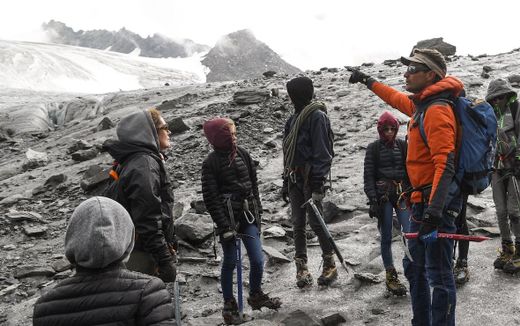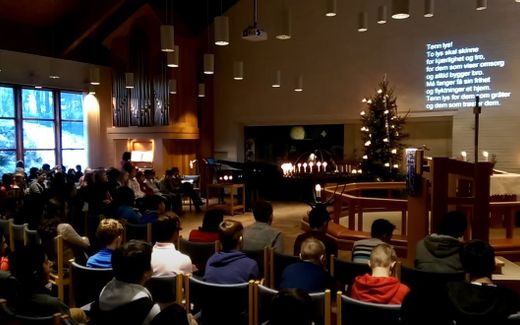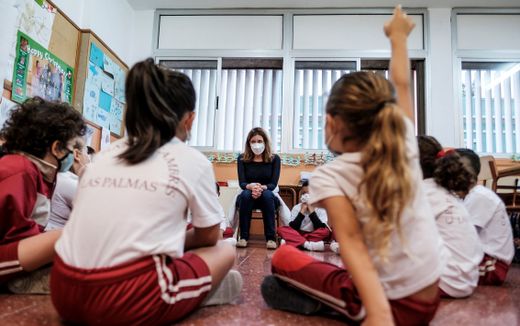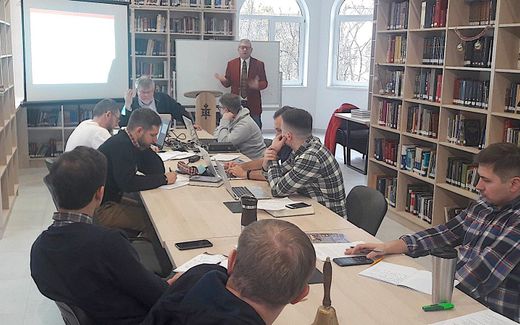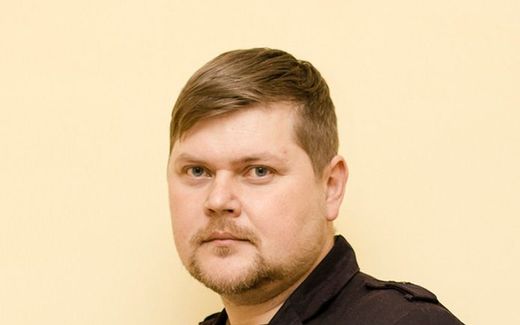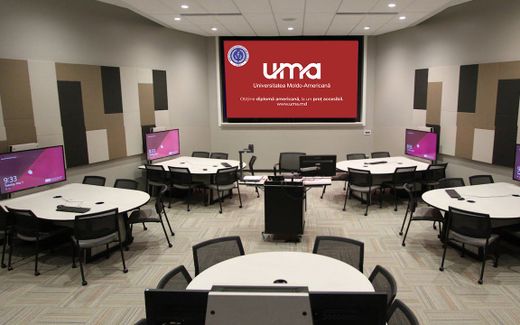Christian schooling in Ukraine: Lessons in the bomb shelter
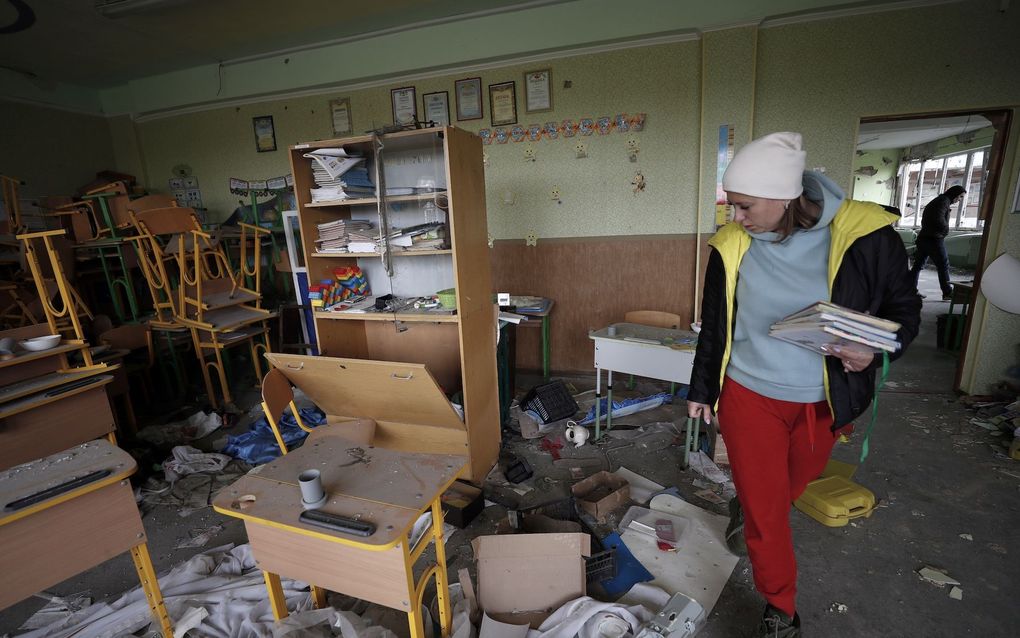
Before the war, all major cities in Ukraine had a Christian school. The Russian invasion possibly also destroyed many schools. Picture: school in Ruski Tyshky, Kharkiv region. Photo EPA, Atef Safadi
Eastern Europe
If rockets fall on the Ukrainian capital Kyiv, the students go to the shelter, or the school switches to online lessons. But if the sky is open, the teachers are there to welcome the children. “To stop teaching would be criminal.”
Tatiana Chumakova is the coordinator of a network of 170 Christian schools in Ukraine (International Alliance for the development of Christian education). This goes from many kindergartens and elementary schools to even two universities (in Bucha and Chersson). Before the Russian invasion in February 2022, this network grew yearly with five or six schools. And even last year, two new schools were opened. “Obviously, in the West of the country, near Lviv”, Chumakova says. “In the East, this would not have been possible. But before the war, all large cities had a Christian school.”
Chumakova is in the Netherlands for a few days at ECCEN (European Conference for Christian Education in the Netherlands) in Apeldoorn, organised by VGS, Driestar educatief and the Jacobus Fruytier Scholengemeenschap. She meets about 80 colleagues there who are active in schools around the continent. She hopes to get some rest during these days, she says laughingly. “It will be a few days without sirens and bomb shelters.”
Evacuate
The first months of the war were heavy. “I made phone calls to all principals in the East to discuss the situation and to ask whether I could help. We have helped evacuate some of them to the country’s west.”
After that, the alliance did everything to make sure that the children and students could finish the school year. “Many children and teachers were displaced or even went abroad. But we have set up online classes. So, most schools were able to finish the year in order. I myself have been busy finding money to pay the teachers. We are happy that we found the money.”
In the capital Kyiv, where she lives, most schools are functioning again. “Shortly after the invasion, people fled because the Russians came from the North, from Belarus. But as soon as the Russians retreated, people returned. Schools that have a bomb shelter can continue their lessons. Sometimes, they go underground and continue with candlelight. If there are rockets in the morning, they teach online.”
(Continue reading below advertisement)
Very enriching are visits from soldiers to the schools. “They know many people are praying for them. Many tell about miracles of God’s protection at the front.”
The situation differs from place to place. Before the war, there were Christian schools in all large cities, she says, but she is not sure now. “We know that many people have come back from abroad, but many others are still away. We will lose almost an entire generation at the front as well. We are thinking hard about how to resume life after the war. Let’s hope that is soon. In the meantime, we hug each other and pray.”
Army man
Until 2014, Chumakova taught herself at the Gloria Christian School in Donetsk. But someday, Russian soldiers entered the building and ordered her to leave. “We had 20 minutes to pack our goods. We fled to Kyiv.”
Her dream has always been that her son would finish his study at a Christian school. He is a young man now. “He serves in the south in the army. I am constantly praying for his safety, knowing there is no safety for an army man now.”
Her husband is also in the same region, helping people and refugees close to the front line. “Because of that, I decided to go there as well. The country is full of refugees. I had been displaced myself as well in 2014, and therefore I can serve now.”
In between, she is still working “non-stop” with education. “We have big plans to continue as soon as the war finishes.”
New law
Many schools were set up after a new education law was introduced in 2015. “That law made it possible for churches to start education. There is even some money for them, although it is not much. Most churches contact us for help. We know how to apply for a license according to Ukrainian law. And we also help with developing education in which Biblical principles are integrated into all subjects.”
Because of this law, most new schools are church schools. “The Gloria Christian School where I worked was an independent private school.”
Chumakova’s network is open to all Christian groups to start a school. In practice, the overwhelming majority of the initiatives are Evangelical. “In the west, there are about eight Greek-Catholic schools now and about 36 kindergartens. The rest of the 170 schools are Protestant.”
The law prescribes that church schools are open to all students, religious or not. “That is no problem. Many parents say it is good for them to learn how to pray, although they do not believe in it. We have a rule that the non-religious group in a class does not grow larger than 40 per cent and that they are not the majority.”
She does not know about schools from the Ukrainian Orthodox Church. “If I knew about such an initiative, I would contact them. But I have never heard.”
Have you never thought about leaving Ukraine too?
Firmly: “Oh, no. By doing that, we would lose everything. We had that in 2014. We love the country too much to leave it. And with my two ‘boys’ (husband and son, ed.) at the front, I cannot leave the country. As a geography teacher, I love travelling. But I will be happy to be back in Ukraine.”
Related Articles


